
You rarely hear the words "emotion" and “strategy” in the same breath.
There's a reason for that: Emotions, especially in popular culture, are believed to be messy and subjective. Strategic planning, on the other hand, is driven by cold logic. It's why we have data and objective analysis, right? It's why strategy consulting has become a multibillion-dollar market, run by disassociated wonks trained in clinical processes.
However, this is a simplistic and naïve way of thinking. Breakthrough research from neuroscientist Lisa Feldman Barrett, a distinguished professor of psychology at Northeastern University, has shown that emotions are essentially forecasts that your brain produces as “shortcuts” based on your past experiences. That includes those in business. According to Barrett, emotions are one of the brain's ways of making sense of a world that would otherwise overwhelm it. By creating these shortcuts, we don't have to process information as if it's new every time-which means we save on reaction time and increase our ability to survive.
So what does this have to do with business strategy? Well, strategy formulation-just like emotion-is also based on a set of forecasts. You are doing what you believe to be best for your company, based on whatever you've experienced before. This means that whenever you embark on a strategy development process, you are in effect embarking on an emotional journey as much as an intellectual one.
Denne historien er fra June 2022-utgaven av Entrepreneur.
Start din 7-dagers gratis prøveperiode på Magzter GOLD for å få tilgang til tusenvis av utvalgte premiumhistorier og 9000+ magasiner og aviser.
Allerede abonnent ? Logg på
Denne historien er fra June 2022-utgaven av Entrepreneur.
Start din 7-dagers gratis prøveperiode på Magzter GOLD for å få tilgang til tusenvis av utvalgte premiumhistorier og 9000+ magasiner og aviser.
Allerede abonnent? Logg på

How to Succeed With Gen Z Workers
People often say that younger employees are different. But are they? We asked six business leaders what they've learned, and how their teams thrive.
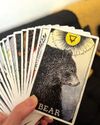
There's No Perfect Answer
I worked the same job for 19 years. I hated it, but it paid the bills. Then, in 2017, I entertained an exciting but terrifying question: Could I be an entrepreneur? I wasn't sure, so I needed something that felt like a guarantee. I searched for signs that would feel like a big, clear \"yes!\" Instead, what I found was a tarot card deck.

10 HOTTEST TRENDS for 2025
Want to buy a brand that buzzes? Here's what to know.
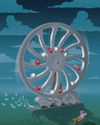
BUILD YOUR MONEY MACHINE
A franchise isn't just a franchise. It should be a Money Machine, creating profit even while you're out of the office. Here's how.
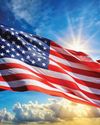
The Top Franchises for Veterans
Are you a military vet looking to become a franchisee, or just want to support a brand that supports the troops? Check out these 150 brands.

20 LEADERS WHO ARE DEFINING ENTREPRENEURSHIP TODAY
In a year of disruption, we wanted to know: Whose work will define the years to come? We reviewed hundreds of names and picked 20 leaders across a range of industries and sizes. Meet them on the following pages, and see what it takes to thrive in 2025 and beyond.
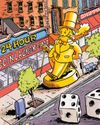
How to Become a Main Street Millionaire
It started when I bought one little laundromat. Now I have a whole portfolio of small local businesses that bring in tens of millions in revenue a year. Here's why following my playbook could be your ticket to financial freedom-and saving America's local small businesses.
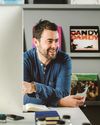
Want to Better Serve Your Clients? Become Them.
As a designer for brands, starting my own product company gave me a dose of humilityand it changed the way I relate to clients.

I've Been a Publicist for 17 Years.Don't Hire Me.
Entrepreneurs often think they need PR. Most don't. Here's why you're probably better off not hiring someone like me.
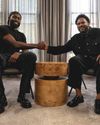
The CEO's Advice to the MVP
Kickstarter CEO Everette Taylor knows the formula for a successful launch. NBA champ Jaylen Brown recently launched a shoe and athleisure brand. They have a lot to teach each other.